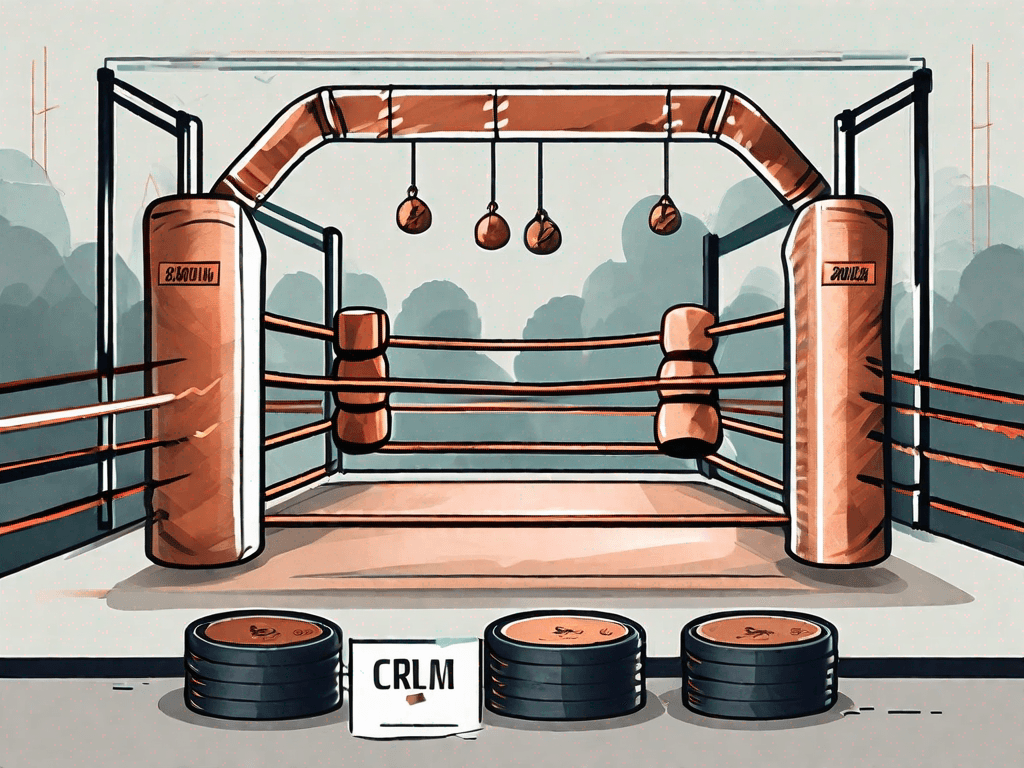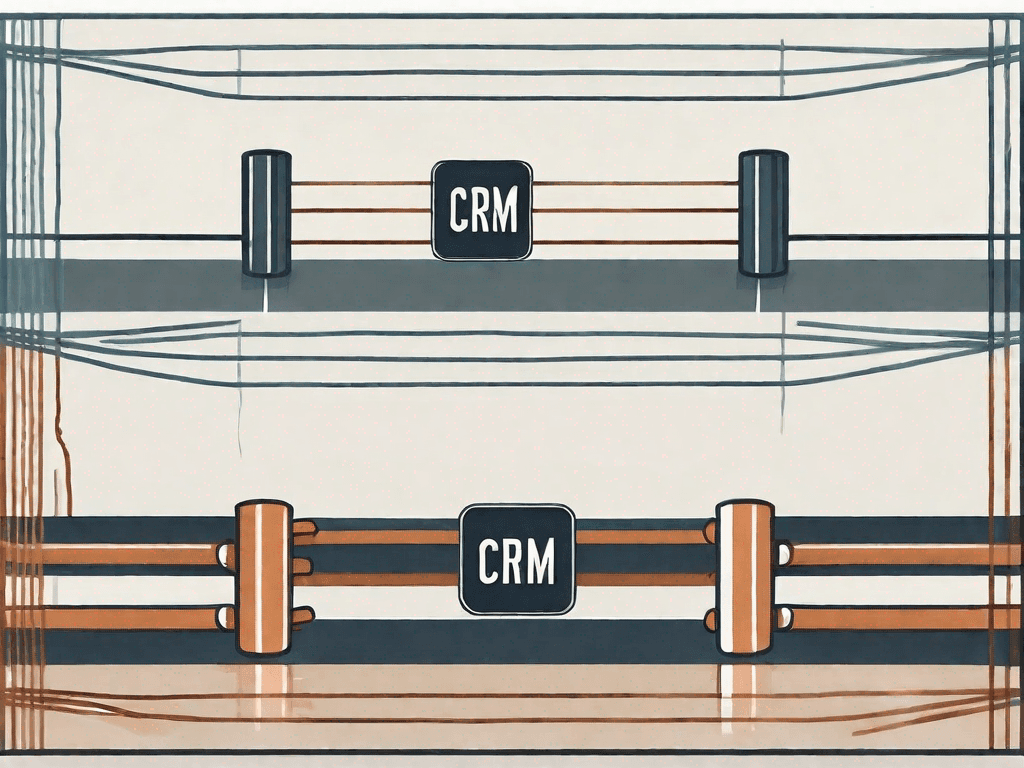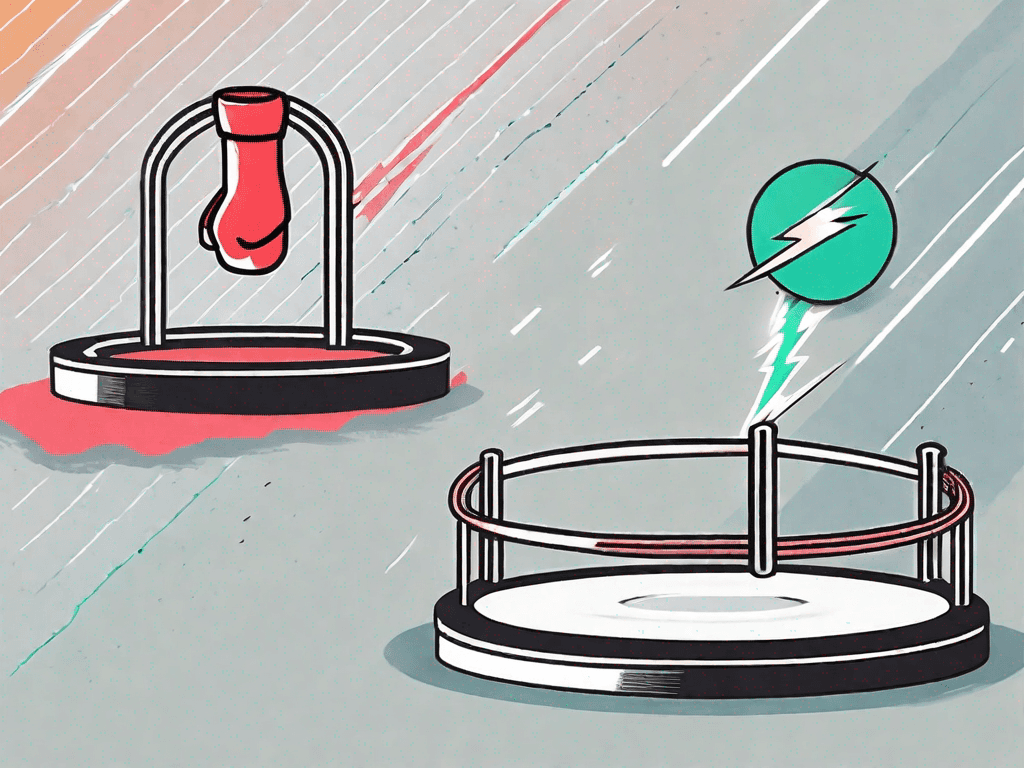
The Ideal Sales Pipeline Template for SMMA
In the dynamic world of digital marketing, having a well-defined sales pipeline is essential for success. For Social Media Marketing Agencies (SMMA), a strategic and streamlined sales process can make all the difference in attracting and retaining valuable clients. In this article, we will explore the ideal sales pipeline template for SMMA and why it is crucial for their growth and success
The 7 Sales Pipeline Stages a SMMA Should Have
A sales pipeline consists of a series of stages that a potential client goes through before becoming a paying customer. For SMMA (Social Media Marketing Agency), these stages can be tailored to fit their specific needs and goals. While the exact stages may vary depending on the agency, there are seven fundamental stages that every SMMA should consider implementing:
Lead Generation: This is the initial stage where leads are generated through various marketing efforts such as content marketing, social media campaigns, and referrals.During the lead generation stage, SMMA employs a variety of strategies to attract potential clients. They create engaging and informative content that resonates with their target audience. This content is then distributed through various channels, including social media platforms, email marketing campaigns, and search engine optimization techniques. Additionally, SMMA leverages their existing network and encourages referrals from satisfied clients. By employing these lead generation strategies, SMMA ensures a steady stream of potential clients entering their sales pipeline.
Lead Qualification: Once leads are generated, it is important to qualify them to ensure that they fit the agency's target audience and have a genuine interest in their services.During the lead qualification stage, SMMA carefully evaluates each lead to determine their suitability as a potential client. They analyze factors such as the lead's industry, company size, budget, and specific marketing needs. By qualifying leads, SMMA can focus their efforts on those with the highest likelihood of conversion, saving time and resources.
Needs Assessment: At this stage, the SMMA conducts a thorough assessment of the potential client's needs and challenges to determine if their services align with the client's goals.The needs assessment stage is crucial in understanding the client's pain points and objectives. SMMA conducts in-depth interviews and discussions with the potential client to gain a comprehensive understanding of their business, target audience, and marketing objectives. This enables SMMA to tailor their services and propose effective solutions that address the client's specific needs.
Solution Proposal: Based on the needs assessment, the SMMA creates a customized solution proposal that outlines the services they can offer to address the client's specific requirements.Once the needs assessment is complete, SMMA develops a detailed solution proposal that highlights the strategies, tactics, and services they will employ to help the client achieve their marketing goals. The proposal includes a breakdown of the recommended marketing channels, target audience analysis, budget allocation, and expected outcomes. By presenting a comprehensive and tailored solution, SMMA increases their chances of securing the client's business.
Negotiation and Closing: This stage involves negotiating the terms of the engagement, including pricing, deliverables, and timelines. Once an agreement is reached, the deal is closed.During the negotiation and closing stage, SMMA works closely with the potential client to finalize the terms of the engagement. This includes discussing pricing options, contract duration, project milestones, and deliverables. SMMA aims to strike a balance between meeting the client's budgetary constraints and ensuring a profitable engagement for their agency. Once both parties reach a mutually beneficial agreement, the deal is closed, and the project moves forward.
Service Delivery: After closing the deal, the SMMA starts delivering the agreed-upon services to the client. This stage involves project execution, regular communication, and ensuring client satisfaction.Once the contract is signed, SMMA begins the service delivery stage. They assign a dedicated team to execute the marketing strategies outlined in the solution proposal. This team works closely with the client, providing regular updates, progress reports, and seeking feedback to ensure that the services delivered align with the client's expectations. SMMA prioritizes open and transparent communication to foster a strong working relationship with the client.
Client Retention: The final stage focuses on client retention and fostering long-term relationships. This includes providing ongoing support, measuring results, and identifying opportunities for upselling or cross-selling.Client retention is a critical aspect of SMMA's success. They strive to exceed client expectations by delivering exceptional results and providing ongoing support. SMMA regularly measures the effectiveness of their marketing efforts, tracking key performance indicators and analyzing the return on investment for the client. By demonstrating the value they bring, SMMA positions themselves as a trusted partner, opening up opportunities for upselling additional services or cross-selling to other departments within the client's organization.
Example of the Customer Journey in a Sales Pipeline for SMMA Step-by-Step
To better understand how the sales pipeline works for an SMMA, let's walk through a step-by-step example of the customer journey:
Lead Generation
Through targeted social media campaigns and engaging content marketing, the SMMA attracts potential clients who are interested in their services.
For example, the SMMA may create eye-catching advertisements on platforms like Facebook and Instagram, tailored to specific demographics and interests. These ads may include compelling visuals and persuasive copy that entices potential clients to click and learn more about the SMMA's offerings.
In addition to social media campaigns, the SMMA may also leverage search engine optimization (SEO) strategies to ensure their website appears prominently in relevant search results. By optimizing their website with relevant keywords and creating valuable content, they increase their chances of attracting organic traffic and generating leads.
Lead Qualification
The SMMA conducts a thorough qualification process to weed out leads that are not a good fit. They assess factors such as the client's budget, industry, and specific needs and challenges.
During the lead qualification stage, the SMMA may use various tools and techniques to gather additional information about potential clients. This could include conducting background research on the company, reviewing their online presence, and analyzing their competitors.
By carefully evaluating each lead, the SMMA ensures that they invest their time and resources in pursuing opportunities that have a higher likelihood of conversion and success. This helps them focus their efforts on leads that align with their target market and are more likely to become long-term clients.
Needs Assessment
Once the leads are qualified, the SMMA schedules discovery calls or meetings to gain a deep understanding of the client's goals, pain points, and desired outcomes.
During these discovery calls, the SMMA's team of experts engages in active listening and asks probing questions to uncover the client's specific needs and challenges. They may explore topics such as the client's current marketing strategies, their target audience, and their desired business outcomes.
By conducting a comprehensive needs assessment, the SMMA can tailor their solution to address the client's unique requirements. This ensures that the proposed services are aligned with the client's goals and have the potential to deliver tangible results.
Solution Proposal
Based on the needs assessment, the SMMA develops a comprehensive solution proposal that highlights the services they can provide to address the client's specific requirements.
The solution proposal may include a detailed breakdown of the recommended strategies, tactics, and deliverables. It may also outline the expected timeline for implementation and the estimated costs involved.
To make the proposal more compelling, the SMMA may include case studies or success stories from previous clients who have achieved significant results through their services. This helps build trust and demonstrates the SMMA's expertise in delivering effective marketing solutions.
Negotiation and Closing
The SMMA engages in negotiations with the client, discussing pricing, scope of work, and timelines. Once both parties reach an agreement, the deal is closed, and the client signs the contract.
During the negotiation stage, the SMMA's team may work closely with the client to address any concerns or questions they may have. They may also provide additional options or alternatives to ensure that the proposed solution aligns with the client's budget and expectations.
Once the terms are agreed upon, the SMMA prepares a formal contract that outlines the agreed-upon services, pricing, and terms of engagement. This contract serves as a legally binding agreement between the SMMA and the client, providing clarity and protection for both parties.
Service Delivery
With the agreement in place, the SMMA starts delivering the services outlined in the contract. They maintain open communication with the client, providing regular updates and addressing any concerns.
Throughout the service delivery phase, the SMMA's team works closely with the client to ensure that the agreed-upon strategies and tactics are implemented effectively. They may provide progress reports, analytics, and performance metrics to demonstrate the impact of their services and keep the client informed about the results achieved.
The SMMA also remains flexible and adaptable, making adjustments to the strategy as needed based on ongoing analysis and feedback from the client. This iterative approach allows them to optimize their efforts and continuously improve the outcomes for the client.
Client Retention
After successfully delivering the initial services, the SMMA focuses on nurturing the client relationship. They ensure client satisfaction, measure the impact of their services, and seek opportunities for additional collaboration or upselling.
The SMMA recognizes the importance of maintaining long-term relationships with their clients. They may conduct satisfaction surveys or feedback sessions to gather insights on the client's experience and identify areas for improvement.
By consistently delivering value and exceeding expectations, the SMMA aims to become a trusted partner for their clients. They may offer ongoing support, provide strategic guidance, and explore opportunities for expanding the scope of their services to help the client achieve continued growth and success.
Alongside managing your sales pipeline efficiently, using tools like a sales tax calculator can ensure your financial calculations are accurate, helping to streamline the pricing discussions with prospects.
Why SMMA needs this Sales Pipeline Template?
Implementing an effective sales pipeline template can bring numerous benefits to an SMMA. Here are two compelling reasons why it is essential:
1. You'll save time managing your clients in SMMA.
By having a clearly defined sales pipeline, the SMMA can efficiently manage their clients' journey from lead generation to retention. This structured approach allows for better organization, proper tracking, and effective resource allocation.
2. You'll grow revenues faster by attracting more high-value clients.
A well-implemented sales pipeline ensures that the SMMA attracts and retains high-value clients who align with their services and contribute to their growth. By focusing on qualified leads and delivering tailored solutions, the agency can maximize revenue potential and build a stronger portfolio.
In conclusion, a well-designed sales pipeline template is a valuable tool for SMMA to navigate the competitive landscape of digital marketing. By incorporating the seven essential stages and adapting them to suit their unique requirements, SMMA can streamline their sales process, attract high-value clients, and achieve sustainable growth.











![The 8 Best Social CRM Software in 2025 [Comparison]](https://framerusercontent.com/images/RYHyYapdgIi83BEWtMdX418.png)
![The 6 Best LinkedIn CRM in 2025 [Comparison]](https://framerusercontent.com/images/Luywfni7ZKjb19yghbhNPy4I4qQ.png)




![The 5 Best Twitter CRM [Comparison]](https://framerusercontent.com/images/EWcbvYnVZglJLO8jp3OlHkTvsHo.png)

























































































































































































